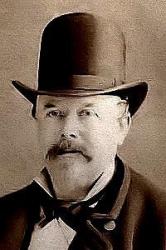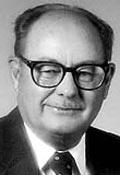1812 - 1883 Person Name: William Joseph Irons Topics: Death and Eternity Judgment; Advent, Second Sunday; Twenty Sixth Sunday after Trinity; Twentieth Sunday after Trinity Translator of "Day of wrath, that Day of mourning!" in Church Book Irons, William Josiah, D.D., son of Joseph Irons, was born at Hoddesdon, Herts, Sep. 12, 1812, and educated at Queen's College, Oxford (B.A. 1833, D.D. 1854), and took Holy Orders 1835. In 1837 he became Incumbent of St. Peter's, Walworth, and was subsequently Vicar of Barkway, Incumbent of Brompton, Rector of Wadingham; and in 1872, Rector of St. Mary-Woolnoth, formerly held by his father's friend, John Newton. He was also Bampton Lecturer in 1870, and Prebendary of St. Paul's Cathedral. He died June 18, 1883. Dr. Irons took a somewhat prominent part in the ecclesiastical controversies of his day, and published extensively thereon in the form of Sermons, Letters, Pamphlets, &c. His important work, the Bampton Lectures, 1870, was on Christianity as taught by St. Paul. His hymnwriting and translating began during his Curacy at St. Mary, Newington, 1835-1837, and was continued to his death. Many were first printed as broadsheets, and subsequently included in the Rev. R. T. Lowe's (Rector of Lea, Lincolnshire) Hymns for the Christian Seasons, Gainsburgh, 1st ed., 1854, and in his own collections. Of these separate publications the most important were his translation of the Dies Irae, and Quicumque vult, and a few special Hymns (Hayes) in 1867. His hymnological works, in addition to these, were:—
(1) Metrical Psalter, 1857; (2) Appendix to the Brompton Metrical Psalter, 1861 (22 hymns); (3) Hymns for Use in Church, 1866 (100 hymns). These contained hymns by Dr. Irons, and others. The next contains his Translations and Original Hymns only. (4) Psalms and Hymns for the Church, 1st ed., 1873 (126 h.); 2nd ed., 1875 (190 h.); 3rd ed., 1883 (308 h.). The principal object of this last work was to supply special hymns on the Collects, Epistles, and Gospels, and for Advent and Lent, together with special hymns for the Festivals; and this to a great extent Dr. Irons was enabled to accomplish. His versions of individual Psalms are directly from the Hebrew, line for line.
In addition to those of Dr. Irons's hymns and translations, which are annotated under their respective first lines, the following are in common use outside of his own collections, the details appended being from his MS. notes:—
1. Blest voice of love, 0 Word divine. Confirmation. Written for a Confirmation at Brompton, and published in Lowe's Hymns for the Christian Seasons, 1854, No. 184; in the Appendix to the Brompton Metrical Psalter, 1861; and the author's later collections.
2. Can earthly voices fitly sing. Public Opening of a School. Written at Brompton on the occasion of the opening of a School, and published in the 1861Appendix as above, and in the author's later collections.
3. Children of earth, for heaven we seek. Epiphany. A meditation on the Collect for the first Sunday after the Epiphany, and published in his Psalms & Hymns, 1875.
4. Eternal Spirit, God of Grace. Whitsuntide. Written in 1865, and published in his Hymns for Use in Church, 1866, and in a revised form in his Psalms & Hymns, 1873.
5. Faithful Creator, Lord Divine. Consecration to God. Published in his Psalms & Hymns, &c, 1873.
6. Father of love, our Guide and Friend. Confirmation. Written for a large Confirmation at Brompton, in 1844, and published in Lowe's Hymns for the Christian Seasons, 1854, No. 185, and in the 1861 Appendix as above, and the author's later collections.
7. Hail, holy rest, calm herald of that day. Sunday. Published in his Psalms & Hymns, &c, 1873.
8. Is not this our King and Prophet? Palm Sunday. Published in his Psalms & Hymns, &c, 1873.
9. It is not finished, Lord of grace. Preparation for Heaven. Written in 1850. It is No. 45 of his Hymns, 1866, in 6 stanzas of 5 lines.
10. Jesu, Who for us didst bear. Words from the Cross. In his Hymns, 1866, No. 42.
11. Joy of joys, He lives, He lives. Easter. Written in 1873. In the New Mitre, 1875; and the author's Hymns, 1875.
12. Lord, hear my prayer, bow down Thine ear. Lent. Published in Psalms & Hymns, 1873.
13. Lord, in Thy wrath Thou thinkest yet. Lent. In his Hymns, 1866, No. 91.
14. Lord, Thy voice hath spoken. The Beatitudes. In Hymns for use in the Church of Saint Ethelburga, Bishopsgate, 1873, and Dr. Irons's Psalms & Hymns, 1875.
15. No sorrow and no sighing. Heaven. Published in his Psalms & Hymns, 1873, in 5 stanzas of 4 lines. In Thring's Collection 1882, stanzas i.-iii. were given from the 1875 text, and a new stanza was added by Dr. Irons at Prebendary Thring's request.
16. 0 God with us, the Saviour. For use during a Retreat. Given in Psalms & Hymns, 1873.
17. 0 how long, how long. Ps. xiii. Appeared in his Psalms & Hymns, &c, 1873.
18. 0 Saviour, now at God's right hand. Jesus the High Priest. Published in the 1861 Appendix as above, and revised in the author's latter collections. In the Psalms & Hymns, 1873., stanzas i., ii., v. are from 1861, iv. from 1866; and iii. is new.
19. 0 who are they so pure and bright? Holy Innocents . Written on the death of Infants in the Epidemic of 1837, and published in Lowe's Hymns for the Christian Seasons, 1854, No. 20, and in the 1861 Appendix as above, in 3 stanzas of 8 lines. In the 1866 Hymns it was divided into 6 stanzas of 4 lines, and this arrangement was repeated in the 1873 Psalms & Hymns.
20. Sing with all the sons of men. Easter. Given in his Psalms & Hymns, 1873.
21. Thanks be to God for meet and right. Processional. Published in his Hymns, &c, 1866, and again in his Psalms & Hymns, 1873.
22. To whom but Thee, 0 God of Grace. Passiontide. Appeared in his Hymns, &c, 1866; and in his Psalms & Hymns, 1873.
23. Triumphant Lord, Thy work is done. Ascension. Published in the 1861 Appendix as above, in 3 st. of 4 1. In the 1866 Hymns the st. (iii.) “0 by Thy spotless, wondrous birth " was added; and in this enlarged form the hymn was repeated in the Psalms & Hymns, 1873.
24. We praise Thee, 0 our God--to Thee. Children's Hymn of Praise to the Holy Trinity. Written for the Schools at St. Mary's Newington, and published in the 1861 Appendix as above, and repeated in the Hymns, &c, 1866, and the Psalms & Hymns, 1873.
25. Who is this from Bethlehem coming? Purification of Blessed Virgin Mary. Appeared in the Psalms & Hymns, 1873.
26. Why art thou weary, 0 my soul? Ps. lxi. Given in his Hymns, &c, 1866, and his Psalms & Hymns, 1873, in 6 stanzas of 7 lines. In Thring's Collection, 1882, stanza iii. is omitted.
Amongst modern hymnwriters, Dr. Irons ranks with the first. His hymns have not been largely used outside of his own congregation; but their high excellence, variety of subjects and metres, intense earnestness, powerful grasp of the subject, and almost faultless rhythm must commend them to the notice of hymnbook compilers. Prebendary Thring has enriched his Collection (1882) with most of those named above. They are of more than usual excellence, and others remain of equal merit.
-- John Julian, Dictionary of Hymnology (1907)
======================
Irons, W. J., p. 571, ii. Of the hymns noted under his name, Nos. 13, 21, and 26, appeared in Chope's Hymnal, 1862.
--John Julian, Dictionary of Hymnology, Appendix, Part II (1907)
William J. Irons


